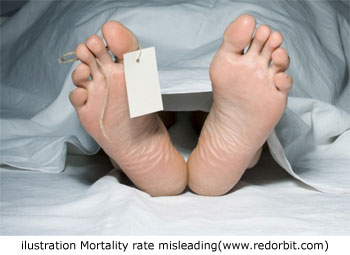 WATERLOO REGION — The president of St. Mary’s General Hospital is alarmed by a new report comparing hospitals across Canada that leaves the impression you’re more likely to die if you have surgery at his hospital.
WATERLOO REGION — The president of St. Mary’s General Hospital is alarmed by a new report comparing hospitals across Canada that leaves the impression you’re more likely to die if you have surgery at his hospital.
The problem is, Don Shilton said, the analysis done by the CBC is hugely misleading because it overlooks his hospital’s specialization in high-risk procedures.
“It’s very concerning,” he said. “We would not want patients to feel in any way they’re not going to get good care at St. Mary’s.”
Shilton is referring to an investigation by the CBC’s Fifth Estate program, which gave overall B grades to Grand River Hospital, Cambridge Memorial Hospital and St. Mary’s.
Using data provided by the Canadian Institute for Health Information, the CBC focused on mortality rates, nursing care and rates of readmission, awarding each category a grade.
Grand River was awarded an A+ for readmission after surgery, meaning substantially fewer patients need to be readmitted following a procedure compared to the national average. But the same hospital scored poorly on problems caused by substandard nursing care.
Cambridge Memorial scored Bs across the board, but an A+ for low rates of readmission after surgery. An average of five out of every 100 patients returned there within a month of surgery — compared to the national average of 6.5.
While St. Mary’s was awarded an A+ for low rates of readmission after medical treatment, it was the D grade for mortality after surgery that alarmed Shilton.
According to the CBC report, the hospital averaged 14.92 deaths per every 1,000 patients within five days of major surgery — compared to the national average of 8.62 deaths. That counts procedures that usually need general anesthetic, such as hip replacements and heart bypass surgery, the CBC said.
“This hospital reports substantially more deaths after major surgery than an average hospital of the same size,” the CBC report said.
St. Mary’s is lumped in with similar-sized community hospitals across the country. What the report doesn’t consider is that St. Mary’s is a regional cardiac centre that specializes in high-risk heart and lung procedures — operations that by their nature have higher mortality rates.
“The concern I have is that people may misinterpret this information and make health care decision inappropriately,” Shilton said.
He points to a report last fall by the Cardiac Care Network of Ontario that suggests St. Mary’s actually has a mortality rate that’s 30 per cent better than the provincial average.
Grand River, meanwhile, says the data used to give it a D in the area of nursing care is several years old. But the report suggests there may still be work to be done, conceded hospital spokesperson Mark Karjaluoto.
Grand River reported 42.87 “adverse” incidents per every 1,000 patients, compared to the national average of 29.19. The report looked at the number of patients who develop problems connected to nursing care such as urinary tract infections, bed sores, pneumonia or broken bones.
Last year, the Kitchener hospital adopted a set of best practice standards from the Registered Nurses’ Association of Ontario that it says are improving overall care.
“We want to do better with nursing care … Hospitals are always evolving when it comes to quality of care, and ours is no exception to that,” Karjaluoto said. “There are things we’re already doing that are going to start reflecting the kind of changes that we’re making.”
The report said while nurses are not solely responsible for these kind of problems, they’re often tied to low nurse staffing levels.
At Cambridge Memorial, spokesperson Stephan Beckhoff said patients deserve accessible reports that help them gauge the quality of care they’re getting.
“We welcome any effort to bring transparency to our health care system,” he said. “If this helps the hospital, then it’s our hope it helps improve the health care system.”
Source: therecord.com








